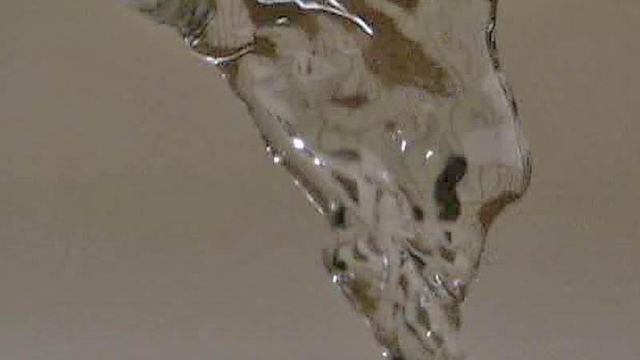Raleigh looks to tap Falls Lake for more drinking water
City officials fear Raleigh's demand for water will outstrip supply by 2040, so the City Council agreed Tuesday to pay for a study of Falls Lake to see if more drinking water can be pulled from the reservoir in the future.
Posted — UpdatedThe water in Falls Lake is dedicated to different purposes, and the $450,000 study by the Army Corps of Engineers, which manages the lake, will determine if water allocated to the water quality storage pool can be safely shifted to the water supply storage pool.
Raleigh currently pulls about 50 million gallons a day from Falls Lake and another 11 million gallons from Lake Benson and Lake Wheeler. Officials say they need to plan for future growth in the region and the possibility of doubling the available water supply.
In addition to Raleigh, Falls Lake is the primary source of drinking water for Garner, Rolesville, Wake Forest, Knightdale, Wendell and Zebulon.
"It takes so long to construct and permit (water facilities), so you plan in decades, not years," said Kenny Waldroup, Raleigh's assistant public utilities director.
The three options Raleigh is considering are pulling more water from Falls Lake, pulling water from below the Falls Lake dam and pulling water from the Neuse River at the Wake-Johnston county line.
Waldroup said officials need to examine the economic and environmental effects of each option and pick the one with the lowest overall impact.
As much as an extra 14 million gallons a day could be pumped from Falls Lake if the Corps of Engineers determines it's feasible, Waldroup said, which would meet demand through 2030. After that, he said, tapping into a reservoir on the Little River in eastern Wake County, which isn't yet built, could provide another 14 million gallons a day.
"If it’s successful, it will allow us to delay the Little River Reservoir project, but it will not allow us to end the project forever," he said.
The Little River Reservoir is projected to cost about $263 million to develop.
The Corps of Engineers study could take one to three years, but Waldroup said Raleigh officials hope to resolve the water issue in the next two years.
"We can implement the project very quickly" if the Falls Lake option is approved, he said.
The City Council also approved an increase to water and sewer rates on Tuesday to pay for upgrades to aging infrastructure. The increase adds $3.75 to the monthly bill of the average family using about 4,500 gallons per month.
• Credits
Copyright 2024 by Capitol Broadcasting Company. All rights reserved. This material may not be published, broadcast, rewritten or redistributed.





